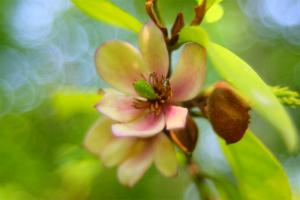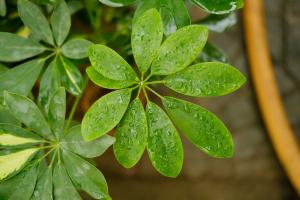How to Fertilize Water Garden Plants
A water garden is a beautiful and unique addition to any landscape, and it requires the same care and attention as any other garden. One important aspect of water garden care is fertilization. Fertilizing your water garden plants can help them grow healthier and more robust, while also improving the overall appearance of your garden. Here are some tips on how to fertilize water garden plants:
1. Choose the Right Fertilizer
When selecting a fertilizer for your water garden plants, it’s important to choose one that is specifically designed for aquatic plants. These fertilizers are formulated to provide the nutrients that water plants need to thrive in a water-based environment. Some fertilizers are also specifically designed for certain types of water plants, such as lotus or water lilies. Be sure to read the label and follow the instructions carefully.
2. Apply Fertilizer Carefully
When applying fertilizer to water garden plants, it’s important to do so carefully to avoid harming the plants or other aquatic life. You can apply the fertilizer directly to the water, or you can mix it with water and spray it onto the plants. Be sure to follow the manufacturer’s instructions on how much fertilizer to use and how often to apply it.
3. Avoid Over-Fertilizing
Over-fertilizing your water garden plants can lead to a build-up of excess nutrients in the water, which can cause algae growth and other problems. To avoid over-fertilizing, be sure to follow the instructions carefully and only use the recommended amount of fertilizer. If you’re not sure how much fertilizer to use, start with a small amount and gradually increase it as needed.
4. Time Fertilization Wisely
When fertilizing your water garden plants, it’s important to time it wisely to maximize its effectiveness. In general, it’s best to fertilize your plants early in the growing season, when they are just starting to grow. This will give them a boost of nutrients when they need it the most. You can also fertilize your plants throughout the growing season, but be sure to do so sparingly and only when needed.
5. Consider Natural Alternatives
If you prefer to avoid using synthetic fertilizers in your water garden, there are natural alternatives you can use instead. Composted manure or compost tea can be used as a natural fertilizer for water garden plants. You can also add fish waste or algae to the water, which will provide nutrients for the plants to absorb.
Conclusion
Fertilizing your water garden plants is an important part of maintaining a healthy and thriving garden. By choosing the right fertilizer, applying it carefully, avoiding over-fertilization, timing it wisely, and considering natural alternatives, you can help your water garden plants grow vigorously and beautifully. With a little care and attention, your water garden will be the envy of the neighborhood!

 how many times do yo...
how many times do yo... how many planted tre...
how many planted tre... how many pine trees ...
how many pine trees ... how many pecan trees...
how many pecan trees... how many plants comp...
how many plants comp... how many plants can ...
how many plants can ... how many plants and ...
how many plants and ... how many pepper plan...
how many pepper plan...





























